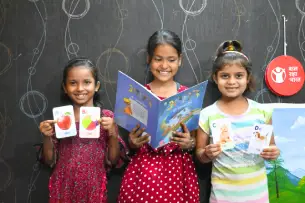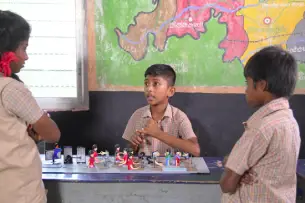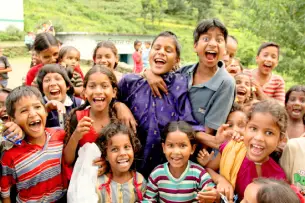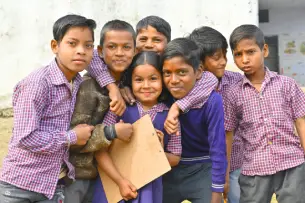
Monu Champion of Change for Green Khanpur
“Every plant we nurture today is a breath of fresh air for tomorrow, which we need so badly in our…
Read More
Four-Year-Old Shagun’s Foundational Learning gets a Kickstart after Guided Intervention
Foundational learning is the pillar of equitable and quality education. Learnings around literacy, numeracy, cognitive, physical, creative, social and emotional…
Read More
This Kolkata teenager is Determined to Improve Liveability in his Locality
Md. Zeeshan, 14, is no stranger to chaos. He lives with his parents, Nuruddin and Malka Begum, and his elder…
Read More
Story of Arman from Kolkata: When Dreams Become Bigger than Obstacles
Twenty-year-old Arman’s story is of grit and resilience. His childhood was cut short due to his family’s dire financial condition….
Read More
Bal Raksha Bharat Intervenes after Early Marriage and Early Pregnancy affects Child’s Health
Laxmi and Savithri are two sisters from North Karnataka whose family is involved in construction work. They got married at…
Read More
Handholding Children in their Journey from “Malnourished” to “Healthy”
Eleven-month-old Jyoti lives with her parents in South Delhi’s Bhanwar Singh camp. Her father is a mason and earns about…
Read MoreExplore more Resources
Ready to brush up on something new? We've got more to read right this way.






